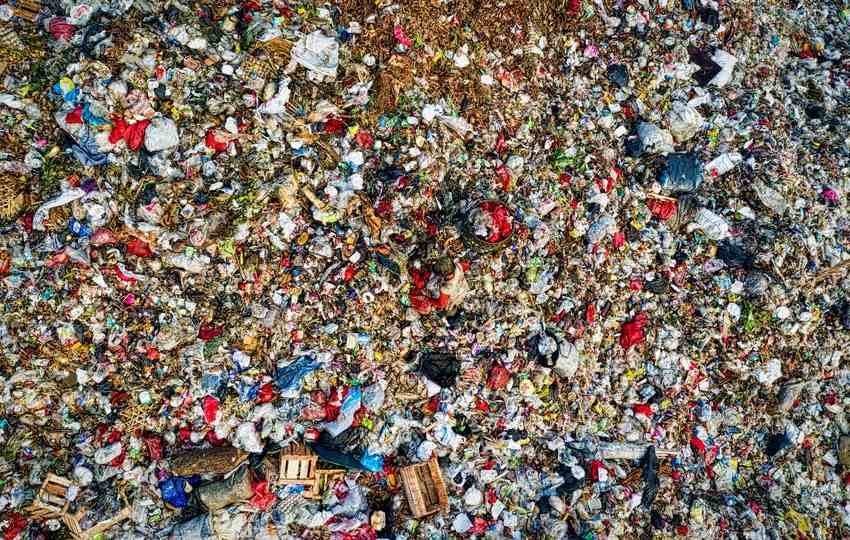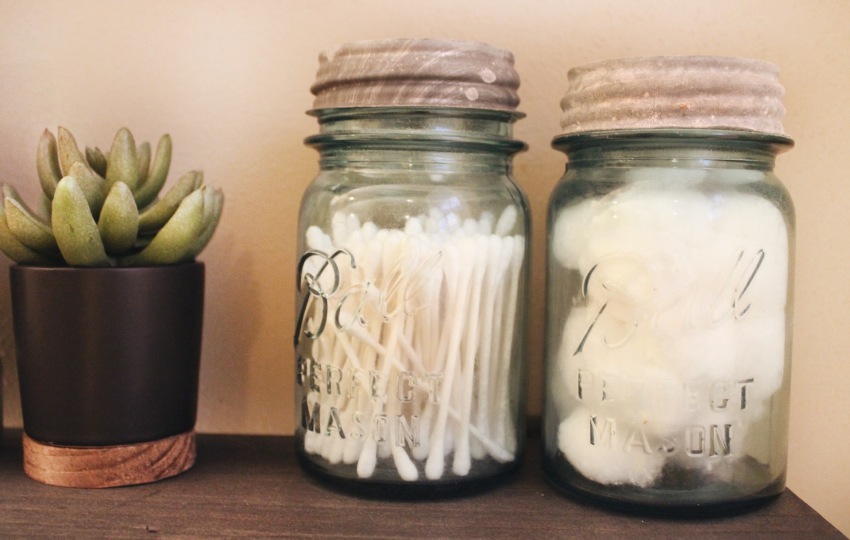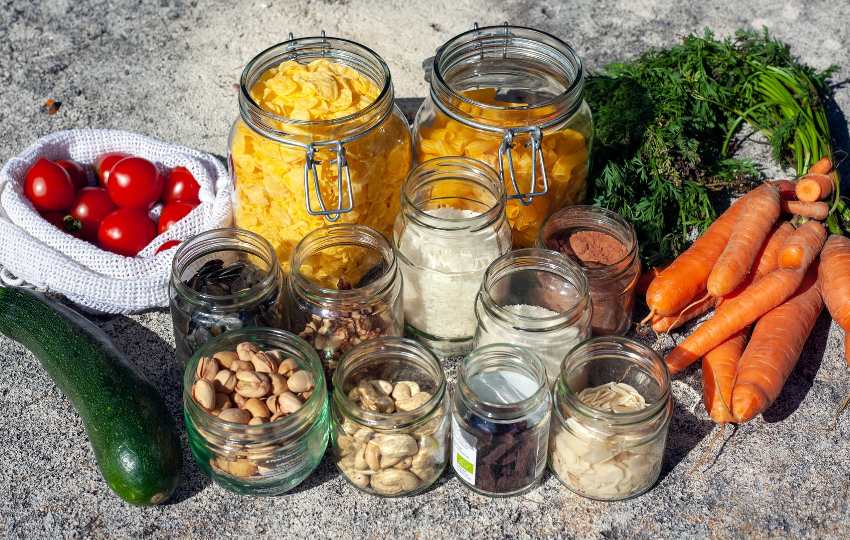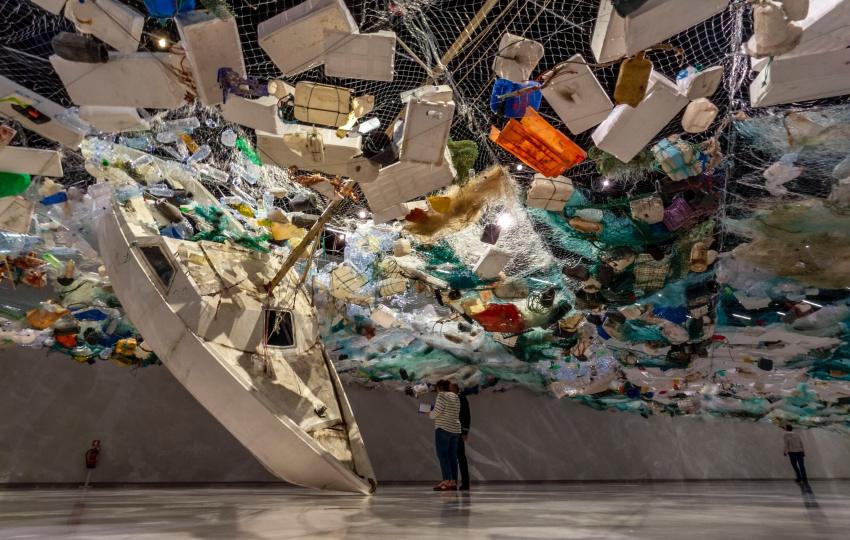We know how hard it is to lead a zero waste lifestyle in our society.
To clear any misconception here, zero waste living does not mean becoming hippies and living an alternative life forfeiting the benefits and comforts of capitalism. On the contrary, it is something more than just following certain principles. The conditions may not be in our favour, but there is room for redesigning and improving our economic systems.
First, a person needs access to proper information to really understand the problem of waste and its environmental consequences. Then, understanding the causes of the problem and acting on it takes patience, commitment, and responsibility.
We all go to supermarkets and see the amount of waste in our supply chain systems with our own eyes. The majority of the food we consume come in plastic food packagings, while we buy it in plastic grocery bags. Unfortunately, at some point, all these will end up in our bin and finally at the landfill, creating literal mountains of garbage and polluting the environment.
This article will give you all the information you need to set you straight on the path of zero waste living.
What is a zero waste lifestyle?
In short, a zero waste lifestyle or zero waste living means that we are actively trying to send nothing to a landfill. Practically, we reduce our needs, reuse as much as possible, and recycle or compost what we cannot. It is certainly not something easy to achieve, but building the right habits can do wonders.
We live in a world where we are constantly bombarded with advertisements catering to our inner consumerism. Just think of all the billions spent every year into marketing campaigns trying to convince consumers to buy more. Therefore, true zero waste living is almost impossible in a society that is hard wired around those principles.
Therefore, to really make a difference in this case, there needs to be something more than individual good intentions. We need to redefine the system of production and consumption of products and move from a linear economic model to a circular one.
What’s wrong with trash?

Or better yet, is there anything good about it?
For consumers, trash is the leftover of consumed products with little to no value and are discarded, eventually ending up in landfills. In Europe, the average European citizen produces 5 tonnes of waste every year. Specifically, only 38% of that waste is recycled, while over 60% of household waste ends in landfills in some EU countries.
Landfills constitute a big problem as garbage are quickly pilling up and expand. Additionally, despite the obvious overconsumption, we can’t ignore other hazards like toxic material. Without a proper sorting of waste, toxic materials like batteries and cleaners end up in landfills. As a result, with the help of rain, they leak into aquatic ecosystems or poison aquifers.
The numbers above clearly highlight how critical waste management is and adopt a zero waste lifestyle. To further highlight how urgent the situation is, every year, we have the Earth Overshoot Day. This day marks the date when we have consumed all the resources that the earth can sustainably produce in a year. The bad news is that this date for 2021 was July 29th.
What about recycling?
Although recycling is a part of the equation in the circular economic system, it is unfortunately not the way out of this problem. There is a reason that we say “Reduce, Reuse, Recycle”, and recycling is last.
The zero waste lifestyle is inspired by ideals like the above expressed by the circular economy. As recycling is not always possible, it is important to prioritize reducing our needs and being innovative in the ways we reuse materials.
Did you know that plastic design is for single use only and that only 9% is recyclable? Furthermore, to add insult to injury, plastic can live for up to 500 years, releasing harmful amounts of methane gas in the process.
With all that in mind, you should understand the gravity of the situation. To avoid creating another “garbage island” of floating debris, we should cut down the amount of garbage ending in the landfill.
The importance of the circular economy
The EU focuses on the digital and green transition to create a climate-neutral Europe by 2050 under the Green Deal to recover Europe from the coronavirus pandemic. With the EU Circular Economy Action Plan, the circular economy will receive a big boost in the years ahead to help create a zero waste lifestyle.
The circular economy aims to extend the product life cycle and reduce waste to a minimum. For that reason, it gives a special emphasis on sharing, leasing, reusing, repairing, refurbishing and recycling existing materials and products as long as possible.
The circular economy will help us redesign the way we think of products and how we consume them. For example, there is a thing called planned obsolescence. In essence, manufacturers create products with a limited lifespan or make it almost impossible to repair and reuse to sell more products.
An economical and production system in place designed to create trash is obvious that cannot continue. This unsustainable way of producing and consuming goods is eating away Earth’s resources and, at the same time destroys the environment. That is exactly the opposite of zero waste living.
How can we achieve a zero waste lifestyle?
A truly zero waste lifestyle is almost impossible to maintain, but every little effort counts to make our world a bit more sustainable. Reducing waste or living plastic free can be overwhelming at first, but small steps will help build a habit.
These are the things that you can employ in your daily life for zero waste:
1. Consume less
Obviously, this is the number one priority that you should focus on. When you have the impulse to buy something, you should always ask yourself, “do you really need it?”. If you think you could live without it, that’s probably a good sign that you don’t really need to buy it.
2. Reuse what you have
For a zero waste lifestyle, you need to refrain from buying new things all the time. Instead, try to be inventive and look around your house for things that you could reuse or repurpose. For example, check your last night’s leftovers instead of going to the supermarket to buy ingredients for your next meal. Alternatively, if you have bought a marmalade, you can reuse it to store dry food instead of throwing away the glass container.

3. Avoid single-use Items
Anyone who has been at a party should know that single use items are the kings and queens. Plastic straws, Styrofoam glasses and paper napkins are just some of the common culprits. We know that they are convenient and can save you time cleaning up afterwards, but the environment should always come first. Instead, you can use your reusable cutlery and cut down a tremendous amount of trash, promoting more sustainability at events.
4. Always go for reusable items
We all go to the supermarkets to buy our groceries. The next time you go there, you can bring your own reusable grocery bag and use that instead. Plastic bags are probably the most common product consumed worldwide, with an estimation of 500 billion to 1 trillion bags annually. With plastic bags taking 20 years to biodegrade in the environment, taking your own reusable bag is a convenient and environmentally friendly way to start on the path of a zero waste lifestyle.
5. Buy in bulk
Buying in bulk is also another excellent and easy way towards zero waste living. If the fact that it is an environmentally friendly way to buy your groceries is not enough, you should know that it can also save your wallet as they are cheaper. Just think of all the packaging that you can save from ending up in the landfill. Many stores are selling in bulk, where you can pretty much find anything that you want. From pasta, rice, vegetables, fruits, dried nuts, fish and meat to shampoos, you can all find them in bulk stores. However, please do not forget to bring your own containers and reusable grocery bags for a true zero waste shopping experience.

Conclusion
The environment is at a critical point of no return on climate change. For that reason, the is an urgent need to change our habits and make them sustainable. Change needs to be drastic as our society is built around consumption, and therefore policies are important here. Adopting a zero waste lifestyle at an individual is important because true change comes from the people. You may not be perfect at first, but the most important thing is that you have understood that something needs to change.
And who knows? If we continue trying, we may be the ones to witness the Great Pacific Garbage Patch disappear.
Partner with iED
iED has vast experience in the implementation of European projects on sustainability. As sustainability will receive a big boost from Green Deal in the following years, iED is ready to make an impact on the environment.
You can get in touch with our team of experts for EU partnerships on sustainability and environmental European projects.
If you wish to find partners or EU calls for proposals on climate action, you can sign up for free on EUcalls.

